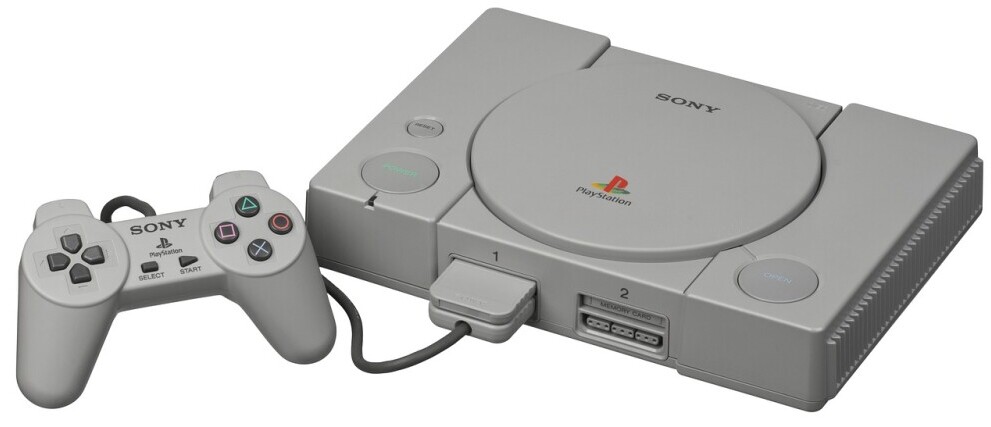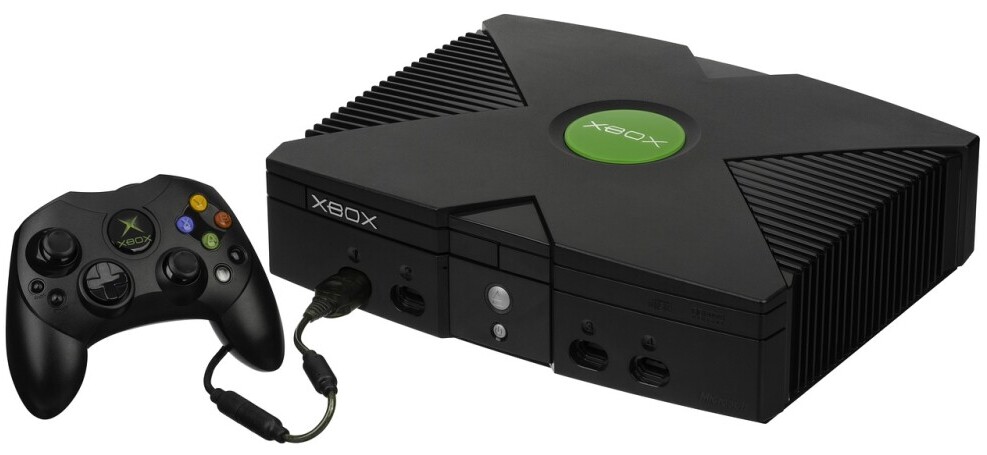
In this article we explore what are the best game consoles so you can make an informed choice. The history of game consoles is quite interesting. It all started with devices like the Magnavox Odyssey in the early 1970s. Fast forwarding through the decades, we’ve seen leaps in technology with each new console generation. Companies like Nintendo, Sony, and Microsoft have been at the forefront, pushing the boundaries of what’s possible in gaming.
Despite the rise of mobile and PC gaming, game consoles remain incredibly relevant. They offer a tailored experience that combines powerful performance and ease of use. Plus, many of the most popular and critically acclaimed games are exclusive to consoles, giving players several reasons to keep coming back.
Whether you’re new to gaming or a seasoned player, understanding what a game console offers can significantly enhance your gaming experience.
Contents
Key Factors to Consider When Choosing a Game Console
Choosing the right game console means knowing what you want from your gaming experience. This isn’t just about the games you like to play but about how you like to play them.
Start by thinking about your gaming preferences. Are you into high-octane shooters, sprawling RPGs, or maybe casual, family-friendly games? Different consoles cater to different genres. For example, PlayStation is known for its single-player narratives, Xbox thrives on multiplayer shooters, and Nintendo excels in family-oriented and innovative games.
Next, consider your budget. Game consoles can range in price, with high-end models offering more features and better performance. Don’t forget to account for the cost of games and accessories, which can add up quickly.
Exclusive games are another crucial point. Each console has its own lineup of exclusive titles that you won’t find anywhere else. Think about the games you can’t live without and see which console offers them. Games like ‘The Last of Us’ for PlayStation, ‘Halo’ for Xbox, or ‘The Legend of Zelda’ for Nintendo might influence your decision.
Online services are also essential. Services like PlayStation Plus, Xbox Live Gold, and Nintendo Switch Online offer different benefits including online multiplayer, free games, and more. Consider what each service provides and how it aligns with your playing habits.
Finally, think about the future. Technological advancements mean new consoles come out fairly regularly. Make sure whatever console you choose will be supported for years to come. Look into the company’s track record for updates and new game releases. Making a well-informed choice now can save you from future hassle.
Popular Game Consoles in the Market
The game console market is packed with top-notch options. Each bringing something unique to the table. Knowing the main contenders can help narrow down your choice.

PlayStation 5, the latest from Sony, boasts impressive specs. It offers stunning graphics, lightning-fast load times, and a sleek design. Its exclusive games catalogue, including titles like ‘Spider-Man: Miles Morales’, is a massive draw. The DualSense controller is another highlight, with its adaptive triggers and haptic feedback offering a more immersive experience.

Xbox Series X and Series S are Microsoft’s flagship consoles. Both deliver solid performance, but cater to slightly different audiences. The Series X is the powerhouse with superior graphics and larger storage. The Series S, on the other hand, is more budget-friendly and compact but still packs a punch. Xbox Game Pass is a significant selling point, offering access to a vast library of games for a monthly fee.

Nintendo Switch continues to be a favorite for many gamers. Its hybrid design allows for both handheld and docked play. Noteworthy titles include ‘Animal Crossing: New Horizons’ and ‘Super Mario Odyssey’. The Switch is perfect for those who enjoy portable gaming or want engaging multiplayer experiences like ‘Mario Kart’.
There are also other contenders worth noting. The Steam Deck by Valve aims to bring PC gaming to a portable console format. It’s designed for those who already have a Steam library and want to game on the go. Although it’s not one of the big three, it’s gaining traction among gamers seeking flexibility.
Each console has its strengths and caters to different types of players. Understanding what each one offers can help make your decision easier. Whether you’re drawn to high-fidelity graphics, a vast game library, or the flexibility of portable gaming, there’s a console out there for you.
PlayStation vs. Xbox: The Great Debate
The rivalry between PlayStation and Xbox has been a topic of discussion for years. These two giants continuously push each other to innovate and improve, benefiting gamers in the process.
PlayStation and Xbox both have rich histories. The PlayStation brand started in 1994 with the release of the original PlayStation, while Xbox joined the scene in 2001. Each generation has brought new advancements and raised the stakes in performance, graphics, and user experience.
Exclusive titles play a significant role in this debate. PlayStation is known for critically acclaimed exclusives like ‘God of War’, ‘Uncharted’, and ‘The Last of Us’. Xbox also has its heavy hitters, including ‘Halo’, ‘Gears of War’, and the ‘Forza’ series. These games often become deciding factors for many gamers.
When it comes to performance and hardware, both consoles offer cutting-edge technology. PlayStation 5 features high-speed SSD and ray tracing capabilities, delivering stunning visuals and fast loading times. Xbox Series X, with its powerful graphics and large storage capacities, is often touted as the most powerful console of this generation.
Online services are another key area of competition. PlayStation Plus offers monthly free games and online multiplayer, while PlayStation Now provides a vast library of games through cloud gaming. Xbox counters with Xbox Live Gold for online play and Game Pass for a wide selection of games available to download and play. Game Pass, in particular, is a strong selling point with its value proposition—day-one access to new titles being a huge perk.
Community and ecosystem also matter. PlayStation has a vast and passionate user base, fostering a strong sense of community through exclusive experiences and events. Xbox, with its backward compatibility and cross-play functionality, focuses on ensuring players’ previous investments carry forward, creating a versatile gaming ecosystem.
In the end, choosing between PlayStation and Xbox often boils down to personal preference. Some gamers prioritize exclusive games, while others focus on hardware performance or online services. Understanding each console’s strengths and seeing how they align with your gaming needs is key to making the best choice for you.
The Rise of Nintendo: A Unique Approach
Nintendo has always taken a different route in the gaming world. Instead of competing directly with Sony and Microsoft in terms of pure performance, Nintendo focuses on innovation and unique gameplay experiences. This has earned them a loyal following.
The Nintendo Switch exemplifies this approach. Its hybrid nature lets players switch seamlessly between handheld and home console modes. This flexibility is a huge plus for gamers who want to continue their games on the go. Titles like ‘The Legend of Zelda: Breath of the Wild’ and ‘Super Smash Bros. Ultimate’ offer immersive experiences that are hard to find elsewhere.
Nintendo’s focus on family-friendly gaming also sets them apart. Games like ‘Mario Kart 8 Deluxe’ and ‘Animal Crossing: New Horizons’ appeal to players of all ages. The console encourages local multiplayer, making it a staple at family gatherings and social events.
Innovation has been a significant part of Nintendo’s strategy. From the motion controls of the Wii to the touch screen of the DS, Nintendo constantly pushes the envelope. The Switch introduced Joy-Con controllers, which can be used separately or together, adding a new layer of versatility.
Online and multiplayer experiences have also evolved with Nintendo. Although initially criticized for lagging behind its competitors, Nintendo Switch Online now offers a variety of features. Subscribers get access to classic games from the NES and SNES libraries, online multiplayer, and cloud saves.
Nintendo’s unique approach isn’t for everyone, but it fills a niche. It appeals to those looking for innovative, family-friendly gaming and unique experiences. If those aspects are important to you, the Nintendo Switch might be the perfect fit.
Emerging Trends in Game Consoles
The gaming industry is always evolving, and game consoles are no exception. Keeping an eye on emerging trends can help you stay ahead of the curve and ensure your console of choice remains relevant.
One major trend is the shift towards digital and cloud gaming. Traditional physical copies of games are becoming less common as digital downloads and streaming services gain popularity. Xbox Game Pass and PlayStation Now are leading the charge, offering vast libraries of games available via subscription. This shift means you might want to prioritize consoles with robust digital ecosystems.
Another exciting development is the incorporation of virtual reality (VR) and augmented reality (AR) technologies. PlayStation’s PSVR has already shown the potential of VR gaming, and more advanced iterations are on the horizon. These technologies provide immersive experiences that can take gaming to a new level.
Indie games are also playing a more significant role in the console market. Smaller, independent developers are creating innovative and unique games that often deliver a different experience compared to blockbuster titles. Consoles like the Nintendo Switch have embraced indie games, giving players even more diverse options.
Looking ahead, we can expect new advancements in hardware and software. Concepts like ray tracing, AI-driven game design, and enhanced connectivity promise to make future consoles even more powerful and interactive. Staying informed about these trends will help you make a choice that won’t quickly become outdated.
These emerging trends highlight the fast-paced nature of the gaming industry. By understanding these shifts, you can make a more informed decision about which game console will best suit your future gaming needs.
Making Your Final Decision

Choosing the best game console involves more than just analyzing specs and features. It’s about finding the right fit for your gaming habits and preferences. Each console offers something unique, and the best choice depends on what aligns with your interests.
Reflect on the key points discussed earlier. Consider your gaming preferences, whether it’s high-fidelity graphics, exclusive titles, or innovative gameplay. Remember the importance of your budget, and don’t forget to factor in costs for games, accessories, and online services.
Match the console to your gamer profile. Are you someone who values exclusive, narrative-driven games? PlayStation might be your best bet. If you’re looking for a powerful machine with a solid game subscription service, Xbox could be the way to go. For those who prefer flexible, family-friendly gaming, Nintendo has you covered.
Consider future-proofing your choice. The gaming industry is moving fast, with new technologies and trends emerging regularly. Opting for a console with a strong development roadmap ensures you’ll have access to the latest features and games for years to come.
Ultimately, the best game console is the one that meets your needs and preferences. By understanding what each console offers and aligning it with your own gaming desires, you can make an informed choice that will provide countless hours of enjoyment.





